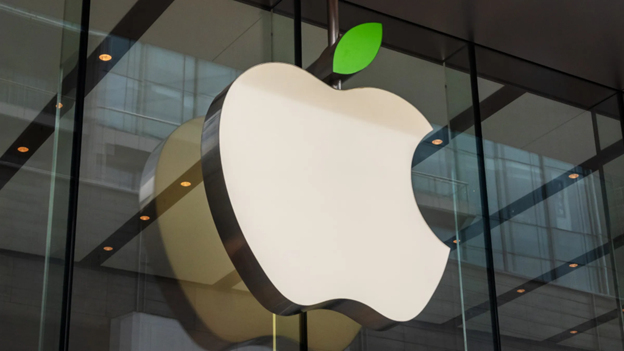Why should you invest in a company that has fallen in love with PROBLEMS, not solutions? [Wednesdays: The Independent Investor]

Miles Everson’s Business Builder Daily speaks to the heart of what great marketers, business leaders, and other professionals need to succeed in advertising, communications, managing their investments, career strategy, and more.
A Note from Miles Everson:
Hello, everyone. It’s midweek!
We’re excited to share with you another coaching comment that is applicable to your investments, career, and personal life.
Every Wednesday, we publish articles about these kinds of topics. Our goal is to help you strategically think about your financial decisions and achieve true wealth in the long run.
Today, we’ll talk about how you can identify stocks that are worth putting your money into.
Read on to know a few investing-related lessons from these business case studies.
Miles Everson
CEO, MBO Partners
Chairman of the Advisory Board, The I Institute
The Independent Investor
Are you familiar with WeWork?
In case you aren’t, WeWork is an office space and workplace solutions company. The firm’s goal is to deliver flexible solutions, inspiring and safety-focused spaces, and unmatched community experiences to its business clients across the globe.
It is headquartered in New York City, and has 700+ branches in over 119 countries.

Photo from Startups
When Israeli-American businessman and entrepreneur Adam Neumann co-founded WeWork in 2010, he had a vision:
“To create environments where people and companies come together and do their best work.”
Neumann wanted to create a sustainable space for freelancers and startup employees to work in… and he wanted those places to be as high-tech as possible. He even wanted to put a WeWork location on Mars someday!
Because of such a vision, the company became known for its bells-and-whistles services and fun tech-firm atmosphere. In fact, WeWork also offered free beer on tap and foosball tables as well as free yoga and kickboxing classes.
While it was still a private company, WeWork managed to reach tech-like valuations. Before it tried to go public in August 2019, it was worth USD 47 billion.
… and then everything fell apart.
Renters priced WeWork’s offices like similar fractionalized offices. The world had lots of private options for renting temporary and flexible spaces such as British company IWG, which was formerly known as Regus.
Additionally, questions arose about Neumann’s business dealings and behavior. By October 2019, would-be rescuer Softbank valued WeWork at USD 4.9 billion… and when the latter went public after 2 years, it had only managed to claw its way back to a USD 9 billion valuation.
Sadly, that didn’t last long.
WeWork failed to address otherwise-unmet customer needs. Try visiting a WeWork space today and you’ll see that it couldn’t let go of its environment, social offerings, and vision.
So… where did the company go wrong?
First, Neumann and his team fell in love with the solution, NOT the problem, and that led to disaster for later-stage investors.
Second, WeWork failed because it was a business of “excess.” It wasn’t actually fixing issues in a way that set it apart from other companies. No matter how much free beer and yoga classes the firm offered, investors just wouldn’t pay for all those extras.
Oh, and another thing: While WeWork is one of the most famous tech busts recently, it won’t be the last. Its story is a good reminder that at the core of both venture capital (VC) and investing is the entrepreneurial mindset of solving customers’ problems.
[Venture capital: A form of private equity financing that is provided to startups and small businesses that are believed to have long-term growth potential.]
That’s why as an investor, you have to be more careful than ever about where you invest your money.
Let’s take a look at another business case study…
Israeli tech “unicorn” company Waze is a good example of the right way to run a startup. The firm has some of the best GPS technology on Earth. In fact, it uses the same map data as the “big guys” like Alphabet and Apple.

Photo from Waze
[Unicorn company: A privately held startup company that has a valuation of over USD 1 billion.]
What’s more?
Waze uses real-time data and crowdsourced information to guide people on traffic avoidance, speed traps, road closures, and hazards!
These show the team behind Waze has fallen in love with the problems of modern navigation. As a result, the company is constantly coming up with new and better services for users.
Apple is another good example of a venture-backed company that did the opposite of WeWork. Its founder, Steve Jobs, had the vision of solving problems people didn’t even realize they had.

Photo from WIRED
Jobs liked to say that computers were like “a bicycle for our minds” in the sense that what sets humans apart from the rest of the animal kingdom is the ability to build tools. The invention of the bicycle allowed humans to move more efficiently than any other species… and computers do the same for people’s ability to process information.
Since then, Apple has solved problem after problem after problem.
The iPod digitized music…
The iPhone lets people take tiny computers on the go…
The iPad combines the convenience and portability of an iPhone with the power of a full-sized computer…
In short, Jobs fell in love with the problems people faced in everyday life, and this resulted in some of the world’s most innovative solutions. Until today, few people’s legacies have come anywhere close to his.
—
According to Professor Joel Litman, Chairman and CEO of Valens Research and Chief Investment Strategist of Altimetry Financial Research, the most successful entrepreneurial firms are either acquired or eventually go public.
… and those IPOs (initial public offerings) become some of the best stocks to own in the long run.
Here’s the thing: It’s tough to tell the difference between a successful startup and one that’s destined for failure. So, as an investor, how can you identify which is which?
Pay attention to how founders and leaders talk about their companies during earnings calls or any other meeting. You’ll see, there’ll be those who explain how their companies solve a problem and those who explain how good their product is.
Both groups can sound good on the surface. However, the more calls, meetings, or presentations you listen to, the more you’ll be able to tell the difference between a WeWork and a Waze or Apple.
We hope you learned a lot from today’s investing advice!
Stick with putting your money in problem-focused startups. This will give you a better chance of investing success.
(This article is from The Business Builder Daily, a newsletter by The I Institute in collaboration with MBO Partners.)
About The Dynamic Marketing Communiqué’s
“Wednesdays: The Independent Investor”
To best understand a firm, it makes sense to know its underlying earning power.
In two of the greatest books ever written on investing, the “Intelligent Investor” by Benjamin Graham and “Security Analysis” by David Dodd and Benjamin Graham (yes, Graham authored both of these books), the term “earning power” is mentioned hundreds of times.
LITERALLY.
Despite that, it’s surprising how earning power is mentioned seldomly in literature on business strategy. If the goal of a business is wealth creation, then the performance metrics must include the earning power concept.
Every Wednesday, we’ll publish investing tips and insights in accordance with the practices of some of the world’s greatest investors.
We make certain that these articles help you identify and separate the best companies from the worst, and develop your investing prowess in the long run.
Our goal?
To help you get on that path towards the greatest value creation in investing.
Hope you’ve found this week’s insights interesting and helpful.
Stay tuned for next Wednesday’s “The Independent Investor!”
Cheers,
Kyle Yu
Head of Marketing
Valens Dynamic Marketing Capabilities
Powered by Valens Research
www.valens-research.com




